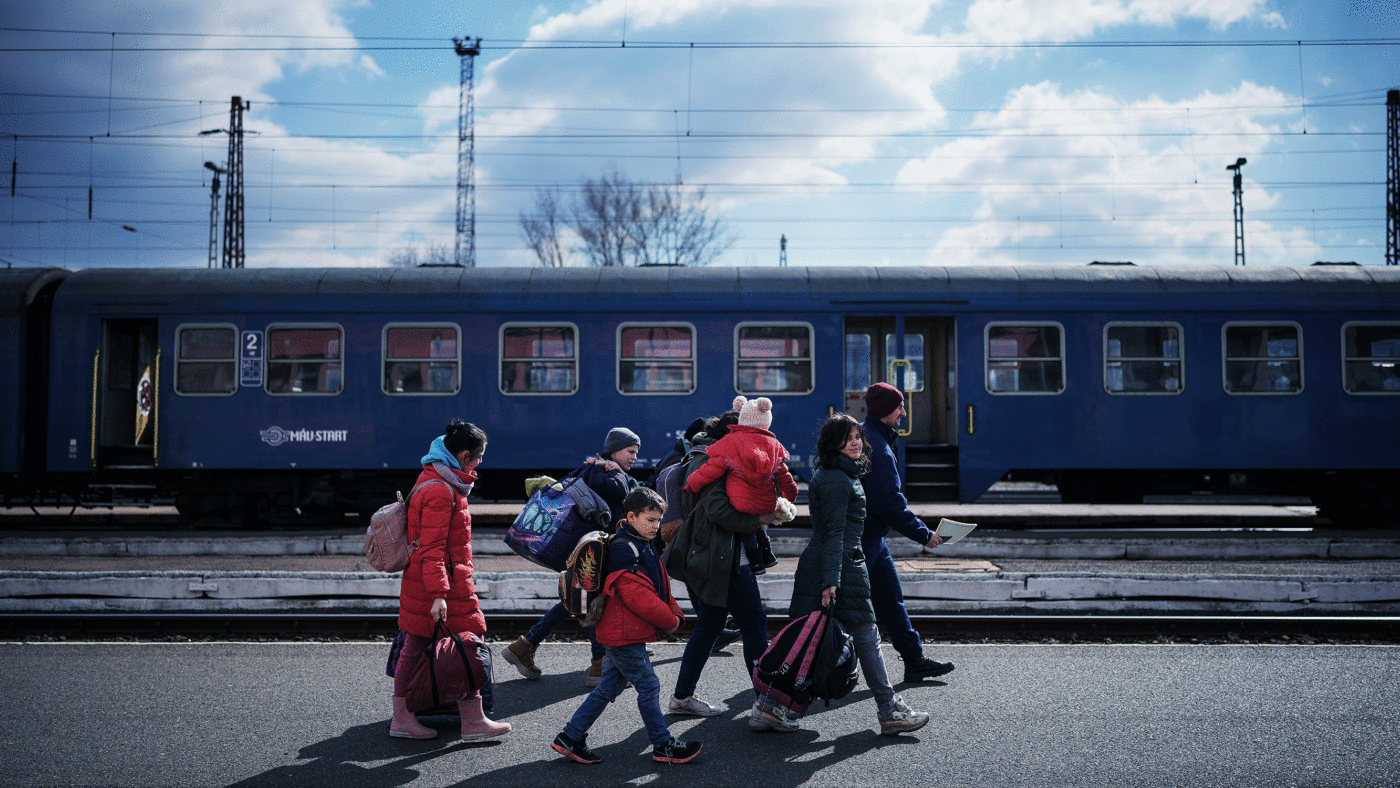As the UK finds itself in the middle of a fierce debate over Ukrainian refugees, Britain’s commitment to rehoming those in danger is once again being called into question.
While the UK Government is understandably coming under fire for the limited number of visas allocated for Ukrainian citizens, this does not change from the reality that Britain is one of the more generous-spirited places on Earth when it comes to providing sanctuary for those fleeing persecution.
Under current Home Secretary Priti Patel, bespoke resettlement routes have been established for Hongkongers fleeing Chinese-state tyranny and Afghans at risk of persecution following the Taliban’s rapid takeover. The Afghan citizens’ resettlement scheme introduced last year is modelled on a similar scheme for Syrians, which resettled 20,000 refugees over a seven-year period from 2014 to 2021. It’s also worth noting the amount of aid Britain provided to countries bordering Syria, which is where the vast majority of those fleeing the Assad regime ended up.
What is often overlooked in the debate over numbers is just where in the UK refugees end up being rehomed. Indeed, it’s the poorest areas of this country that have taken in a disproportionate number of newcomers, while wealthier areas have by and large failed to take in their fair share.
The blunt truth is that the UK’s ‘refugee dispersal system’ has been a failure for some time. A recent analysis found that almost one in four asylum seekers in the UK supported by the Home Office were housed in just ten local authorities – the majority of which are among the most deprived in the country. They include Rochdale, Middlesbrough, Stoke-on-Trent, Hartlepool, Cardiff and Glasgow – with the Scottish city having the UK’s highest number of refugees as a proportion of its population.
Recent data shows that northern England – including the north-west, north-east and Yorkshire and Humber – had taken more than one in four asylum seekers in the UK (42%). To put this in perspective, only 6.5% have been placed in southern England (excluding London). The current state of affairs is not sustainable and risks intensifying social tensions in underprivileged communities where there is a perceived ‘competition for resources’.
There are of course obstacles when it comes to distributing refugees throughout the country. For example, more remote rural areas often lack the existing social infrastructure and public resources to cope with complex refugee needs. If we are serious about taking in thousands of Ukrainians – and it’s unclear how many would come to the UK, given the relatively small Ukrainian community in this country – it needs to be a truly national effort. That means a multi-agency approach to rehoming refugees which involves central government, local councils, civic associations, businesses and individuals who want to do their bit.
Bodies such as the Associations of Ukrainians in Great Britain (AUGB), which has local branches in places such as Coventry, Gloucester, Reading and Waltham Cross, can certainly play an important role here.
But the provision of accommodation, school places and civic integration courses for newcomers can no longer disproportionately fall on the shoulders of the poorest local authorities in the country. A fairer and more inclusive strategy must be adopted, otherwise national cohesion and social solidarity will be compromised. The last few weeks have made abundantly clear the compassion the British people have for those fleeing a horrifying conflict, but it’s not right that certain areas should bear much more of the effort than others to welcome them than others.
The UK’s refugee policy is ultimately one of many examples of how we are not really ‘all in this together’. Under-resourced, working-class communities take on the difficult task of rehoming process, only to then be portrayed as inward-looking and mean-spirited when they express the slightest of anxieties over that challenge.
Ultimately, while we do want to offer a warm welcome to those fleeing conflict, we must do so with a fair dispersal strategy for Ukrainian refugees and comprehensive support for poorer local authorities.
Click here to subscribe to our daily briefing – the best pieces from CapX and across the web.
CapX depends on the generosity of its readers. If you value what we do, please consider making a donation.


